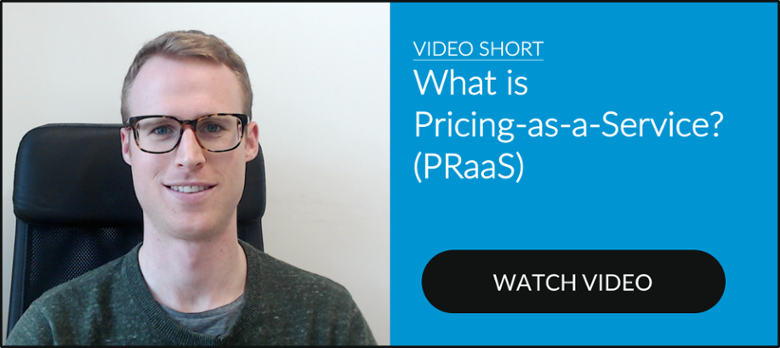
Renowned investor Warren Buffett has said, “The single most important decision in evaluating a business is pricing power. If you’ve got the power to raise prices without losing business to a competitor, you’ve got a very good business. And if you have to have a prayer session before raising the price by 10%, then you’ve got a terrible business.” Getting your prices right is key to business success and there is therefore no question that the role of a pricing executive is a responsible one.
Pricing executives are responsible for ensuring cost accuracy, presenting cost revisions, updating pricing history databases, evaluating the efficiency of pricing actions, and responding fast to market conditions. These professionals collaborate closely with product managers, marketing and sales departments in order to maximise profitability.
Most pricing executives have accounting expertise, sales orientation, marketing experience, leadership, time management and computer competencies on their CVs, with a degree in marketing or a finance-related subject. What they definitely need is business acumen.
But, however respected you are in your job as a pricing executive (and however well qualified) are you sure that you always utilise your skills, expertise and know-how to squeeze out those extra profits for your company?
Are you willing to learn?
Whether you're taking online courses, reading books and articles or attending pricing conferences, it is important to continually challenge your perceptions of pricing and learn new ways to optimise and improve your price management.
It is also equally imperative to keep up to date with the latest in marketing techniques along with changes in economic and political environments; so, research your market, learn what makes it tick, how it is going to develop, change and evolve etc.
Recent research by MIT Sloan Management Review found that all companies with the best price management had top managers who championed the development of skills in price orientation and price realisation.
Regardless of their industry, the degree to which managers focused on developing these two capabilities correlated to their companies’ success in achieving a better price for their product than their competitors.
Without managerial engagement with the pricing team companies typically used historical cost information to set prices and left too much pricing authority to the sales force. Have a word with your senior management if you think they are dragging their feet on pricing matters. If you are confident, competent and flexible they should be willing to listen.
Do you display excellent leadership and communication skills?
Pricing executives may be responsible for ensuring the productivity and efficiency of a team, as well as enforcing policies and procedures. It also helps if you are a good communicator with excellent interpersonal skills, comfortable working both in a team and independently. If you work in a team you have to be a role model for your team members.
Like any other manager, a pricing executive is successful only when he/she is a strong source of inspiration and motivation for team members.
Pricing executives always know the best pricing strategy required to optimise prices
In whatever market you're in price has always potentially been a deal-breaker. The right price can mean a 'done deal' while overpricing might scare customers away. There are many different pricing strategies designed to bring in customers but perhaps the one you should be most considering is value-based pricing.
A value-based pricing strategy determines how much money or value the product or service will generate for your customer, which could originate from factors such as increased efficiency, time-saving, happiness or stability. Generally, a value-based price is higher, yet the customer is willing to pay more because the product offers greater value - which increases profits for your business.
A successful pricing executive needs to understand the customer, their traits, likes, dislikes, drivers and willingness to pay; try walking in your customers' shoes regularly to understand what it feels like from their perspective. Are you fully aware of just who your target customer is and how much money that customer generally has to spend?
By conducting market research into what your customers value most you will gain:
- Real "willingness to pay" data that forces you into a profit generating price
- The ability to implement price segmentation to capture a greater proportion of the market
- The development of higher quality products designed to give your customers what they really want. If the products, additions and features are driven by consumer demand this results in a higher price and more profit for your business.
- More personalised and considerate service to which your customers will keep returning because they trust your value and price.
Of course you must introduce a pricing strategy that complies with the overall business strategy to meet your company standards, policies, procedures and goals. Pricing executives must also ensure that the sales and marketing departments are "on board" with any pricing changes.
Do you have the ability to see pricing problems in the wider context?
- Where are we now? This helps to answer questions about your competitors, product or service ranges, market share and financial position.
- Where do we want to be? This question helps senior management in formulating strategies and setting financial targets for the company.
- How do we get there? This question helps senior management in evaluating different routes to overcome difficulties.
- Which way is the best? This question helps senior management underline one or two routes most suitable for achieving goals.
Be assertive
Good price management will promote your business to the next level. As a pricing executive, you'll keep a watchful eye on the customer's maximum willingness to pay and the differential value to customers of your company's product and service.
You'll implement good systems to monitor and communicate prices changes to sales personnel, marketing managers and other decision makers.
You will also have to have the self-confidence to walk away from unprofitable deals. As demonstrated here, to excel as a pricing executive can be challenging – but you will achieve excellent results if you are a clear thinker, remain decisive and are good at negotiation and problem-solving.
Be assertive without being overbearing – and remember the key is to communicate and promote the importance of pricing at all levels.
Related Posts
5 Ways Price Management is Changing
How to Talk About Pricing without Scaring People
5 Signs You're a Pricing Genius
Sources
Managing Up, Harvard Business Review 2014
How to Improve Your Leadership and Management skills – Effective Strategies for Business Managers, Meir Liraz 2013
http://www.greatsampleresume.com/Job-Responsibilities/Pricing-Manager-Responsibilities.html
http://managementstudyguide.com/personality-traits-of-successful-manager.htm
http://changingminds.org/disciplines/leadership/theories/trait_theory.htm
http://www.ehow.com/about_7221957_pricing-manager-job-description.html
http://www.wisegeek.com/what-does-a-pricing-manager-do.htm
http://study.com/articles/Pricing_Specialist_Job_Description_Duties_and_Requirements.html
http://www.jobhero.com/resume-samples/pricing-manager#



